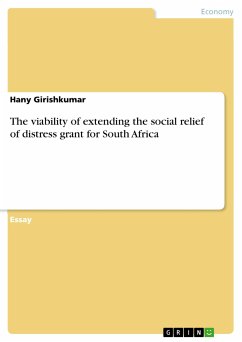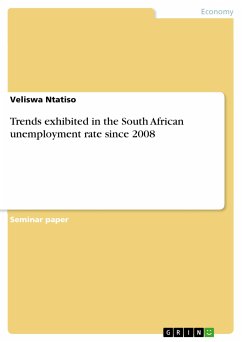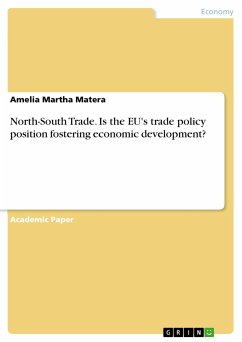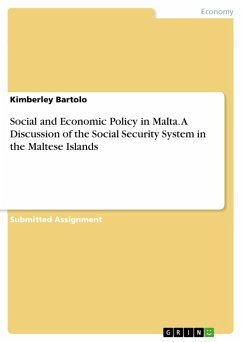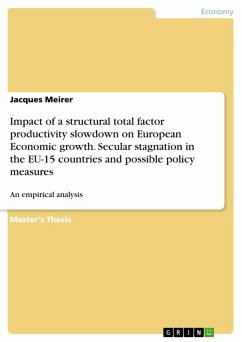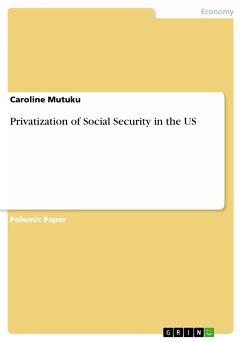Essay from the year 2023 in the subject Business economics - Economic Policy, grade: 85, University of Cape Town (commerce), course: Policy Analysis, language: English, abstract: South Africa is one of the world's most unequal nations, with approximately 18.2 million people living in poverty (Statista, 2023). These historically-rooted challenges were further exacerbated by the COVID-19 pandemic and the subsequent lockdowns, resulting in an unemployment rate of 32.9% in the first quarter of 2023 (StatsSA, 2023). In response, the government introduced the Social Relief of Distress Grant (SRDG) amounting to R350 per month in May 2020 (Government of South Africa, 2023). This grant has since become a support mechanism for the marginalised South African population, providing essential assistance in terms of household income and food security. However, it is noteworthy that despite its significance, this grant has remained unchanged due to rising fiscal limitations in the country. This presents a policy dilemma: considering South Africa's fiscal constraints, should the government consider extending the SRDG? This essay explores the feasibility of extending the SRDG in South Africa, with a primary focus on the country's fiscal constraints and underlying structural challenges. Firstly, the essay examines South Africa's fiscal state, including government debt, spending priorities and taxation. It also analyses how inflation sensitivity and reduced foreign investment impact the nation's fiscal health. Subsequently, it explores broader structural issues persistent in South Africa, expanding the scope beyond immediate fiscal concerns. These issues include inefficiencies within state-controlled monopolies such as Eskom, overdependence on commodity exports and the persistent scarcity of skilled labour. Despite government initiatives like Operation Vulindlela and the Expanded Public Works Programme, these initiatives have proven insufficient in overcoming the country's challenges. Drawing insights from both fiscal and structural dimensions, the essay contends that extending the SRDG currently unfeasible. Consequently, this essay offers policy recommendations aimed at promoting sustainable economic growth, while concurrently addressing fiscal, structural and societal challenges.
Dieser Download kann aus rechtlichen Gründen nur mit Rechnungsadresse in A, B, BG, CY, CZ, D, DK, EW, E, FIN, F, GR, HR, H, IRL, I, LT, L, LR, M, NL, PL, P, R, S, SLO, SK ausgeliefert werden.

